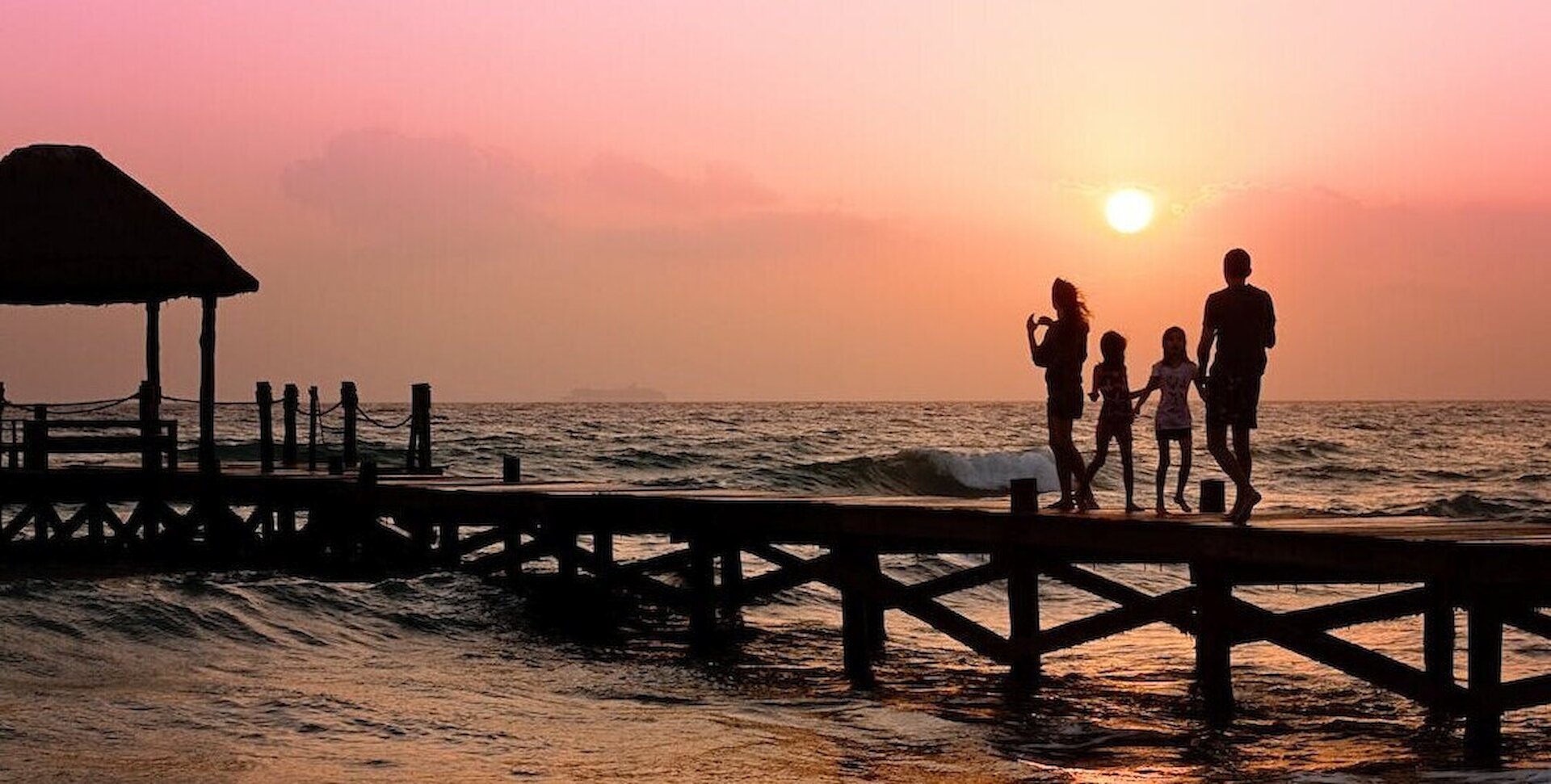The biggest influence on your child is you. Your greatest responsibility is to protect your child from harm and bring them up safely.

- What happens if someone has reported a concern about my child?
A professional may contact you to ask you to help them set up any extra help your child may need. More information is at www.shetland.gov.uk/children_and_families/GIRFEC.asp
If there are child protection concerns, it is likely that a social worker will visit you to discuss the position. Your social worker will explain to you what will happen next, and should give you a leaflet with their contact details so that you know whom to ring if you have any questions. Examples are shown below. There may be a meeting to discuss your child's situation and make sure they are safe. This is called a child protection planning meeting. Parents are almost always invited and entitled to see the report that professionals take to the meeting. You can usually take someone with you to help you tell your point of view - just check with the person who asked you to the meeting. You can write your own report if you wish.
More information is in the leaflets below. The detailed procedures that professionals use are in the updated May 2019 Shetland inter-agency Child Protection Procedures
If you are asked to attend a Children's Hearing the Reporter will send you more information. You might also want to have a look at this website, where there is a section for parents and carers: www.scra.gov.uk/home
- What can I do to keep my children safe from harm?
Risk is a part of everyday life. Minor stumbles and scrapes are a part of growing up. It's important that children take part in activities and are able to play outside. But you remain responsible for their welfare. You will want to make sure the risks have been considered and are reasonable. Generally speaking you should know where your child is and with whom. For information to help you assure that organised groups your child takes part in are well managed and keep your child safe please see here. advice-to-parents-on-safe-practice-in-yth-grps-leaflet-update-oct-22_1.pdf (nbcom.co.uk)
- Online safeguarding: the dark web - the Children’s Society have published a guide to the dark web describing what it is, how young people might use it and what to do if you have safety concerns.
- Talking to your child about staying safe online - leaflet
- Parent Zone and CEOP. http://parentinfo.org/ - information for parents
NSPCC Adult Helpline is also an important source of support for anyone concerned about the safety of a child – adults can call 0808 800 5000 or report concerns online.
- Useful links and websites for parents and guardians
- https://swiggle.org.uk/ - child friendly search engine
- Thinkuknow - There's a viral scare. What should I do? Reports of online scares or challenges encouraging harmful or suicidal behaviours can be alarming and confusing. Follow the link to find out how you can speak to your child about scares and challenges, and how to respond if they have seen one.
- For info on online safety go to Think U Know
Parents Guide to Support - Gaming
Information and advice to help you and your family create a healthy culture around gaming, and to help you support your child if they're struggling.
Childline - Zipit App
Recognising the growing problem of online safety, ChildLine launched its first ever mobile phone app called Zipit, which can be downloaded from the ChildLine website as well as all major app stores. Zipit offers young people funny images they can use as a response to requests for naked or explicit pictures.
- For info on alcohol and parenting and how to talk to your children about alcohol go to http://www.drinksmarter.org/sensible-drinking-and-you/alcohol-and-young-people
Equal Protection from Assault Act
On 7th November 2020 the law in Scotland changed. This means that no adult has the right to physically punish a child - this means hitting, smacking, skelping and pinching (but it can mean other forms of physical punishment too) Factsheet and FAQs
- Physical Punishment Leaflet for Parents and Guardians
- Anchor Project and Early Help Team - The Early Help Team will be attached to your local school to help ensure all families are supported in whatever way they need. Support includes food parcels, clothing and free school meals/benefits. See Leafet and Contact:-
Contact via email: [email protected] or telephone: 01595 745242/745246
You may also find the following websites helpful, subject to the disclaimer at the bottom of the page.
- Children First - www.children1st.org.uk/
- Parentline Scotland: https://www.children1st.org.uk/help-for-families/parentline-scotland/
- https://www.nspcc.org.uk - The NSPCC website has lots of useful information and links to other resources
Net Aware includes advice from O2 and NSPCC experts on the social media apps and platforms kids are using. It covers the latest trends and most pressing issues facing kids online, helping parents, carers and young people to stay on top of things.
- NSPCC has created a range of support resources for parents and for professionals
Here are some more organisations that can help:
- ParentLine Scotland
ParentLine Scotland - For confidential advice on a range of parenting issues
- Domestic Abuse
Domestic Abuse - Domestic Abuse is bad for children, whether they are in the same room or not. As many as 1 in 5 women in Scotland, and some men, will experience domestic abuse in their lifetime. The issue affects children and young people too. If you need to talk to someone about this you could call the Scottish Domestic Abuse Helpline FREE on 0800 027 1234 or visit their website.
Shetland Women's Aid - Shetland Women's Aid provides counselling, support, advice and information for women (all ages) and children and young people (up to age 18) who have experienced, or are experiencing, physical, emotional or sexual abuse
Respect - Mens Advice Line - Men experiencing domestic abuse whether from a woman or same sex partner can get more information at The Respect Helpline that offers information and advice to people (male or female) who are abusive towards their partners and want help to stop.
(Respect is the UK membership association for domestic violence perpetrator programmes and associated support services. www.respect.uk.net/)
- Substance Use Disorder
Shetland Alcohol & Drug Partnership - If Substance Use Disorder affects your life, whether your own, a partner's or a child's, it is likely to be affecting the whole family.
The Substance Misuse and Recovery Service provide assessment, treatment and support for those wishing to address their drug and/or alcohol issues. The team take self referrals either by phone on 01595 7430076 or Face to Face at The Mental Health Department, Lerwick Health Centre.
Shetland Young Carers - A child who is undertaking caring responsibilities for you, your partner or for brothers or sisters, whether because of disability, substance issues, mental health problems or for some other reason is a Young Carer and is entitled to have their own support needs assessed through the GIRFEC process. Shetland Young Carers Group meets regularly to offer support to such young people.
- Relationship Problems
Relationship Scotland - If you are experiencing relationship problems, counselling for couples and individuals is available through Relationships Scotland Couple Counseling Shetland.
Relationship Scotland - Family Mediation - When parents separate, it's often not so much the separation itself but on-going arguments between their parents over issues such as contact that affect children most. Family Mediation Shetland can help parents focus on the needs of their children and make decisions together about these arrangements.
- Bereavement
Shetland Bereavement Support Service - provide counselling support if you have experienced bereavement.
- Sexual Abuse
Compass Centre - If your life is affected by sexual abuse, support is available in Shetland through The Compass Centre.
Men and women can also get support through the Rape and Sexual Assault Line. Locally call the Compass Centre on 01595 747174 or email [email protected]
- Financial Help
Building Financial Skills for Children and Young People Handbook - Advice and ideas on making good financial choices and wellbeing.
- Getting It Right for Every Child (GIRFEC)
Getting It Right for Every Child (GIRFEC) - More information on how a package of help could be arranged for you and your children if your family is affected by any of these or any other issues through 'Getting it Right for Every Child'
Child Sexual Exploitation (CSE)
- CSE is a form of sexual abuse and anyone who has concerns that a child or young person is being exploited in such a way should make a child protection referral immediately.
The Scottish Government has a national plan for tackling CSE and the Digital Safety and CSE Committee has responsibility for the local Shetland Plan.
Additional Information
Celcis - Child Sexual Exploitation - guide for health staff
Scottish Government Child sexual abuse and child sexual and criminal exploitation
NSPCC Research and Resources - Child Abuse and CSE - NSPCC Inform
Child Sexual Abuse
- The Upstream Project was set up to enable adults and communities in Scotland prevent child sexual abuse. Preventing child sexual abuse is all our responsibility and this depends on changing the thinking and behaviour of adults.
The Upstream Project - website link
Support For Families – Leaflet on prevention services and resources we provide. Written for child protection professionals working directly with families where there is a risk of harm to children e.g. children and family’s social workers, teachers, third sector organisations etc
What we all need to know to protect our children - Guide for parents and carers, including advice on what to do if they are worried about risk to a child.
Cyber Resilience & Internet Safety – This resource explains how to talk to children about online safety and provides up to date information on the latest websites & apps that parents should be aware of. This is particularly useful for parents & carers.
What’s The Problem – Scottish update of guide for parents and carers worried their child has sent or received sexual images, has accessed online pornography or has been arrested for accessing indecent images of children.
Disclaimer − On this website we have included links to a number of websites based elsewhere in the UK. They contain a lot of useful information, not all of which is as readily available in Scotland. Although the general advice given is likely to be the same across the UK, websites based in England, Wales and Northern Ireland may refer to the law, institutions and practice guidance in place in those jurisdictions, which are different from those in force in Scotland. For more information about those aspects in Scotland, please refer to Scottish-based organisations, or seek further support locally.
It is everyone’s job to make sure children and young people are alright.
If you are concerned about a child’s welfare please tell someone who can help.
These are the phone numbers:
Duty Social Work − Monday to Friday, 9am to 5pm: 01595 744420. Outside office hours: 01595 695611.
Police: 101, or 999 in an emergency.
Children’s Reporter: 0131 244 3780
